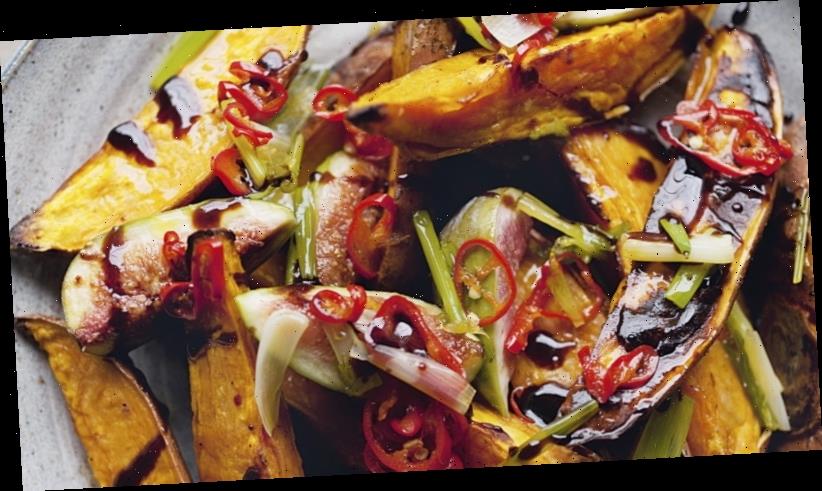It would be easy to list all the things that, over the last decade, have become worse – the dire effects of climate change being the most obvious. Yet, with the end of the 2010s just days away, perhaps we can take comfort in the slivers of good news. Here are some of the things about the world that have improved in the last nine or ten years.
The arrival of the dating apps. Ask about dating apps when they first arrived – Grindr in 2009, Tinder in 2012 – and the expert view was pretty grim. They’d destroy committed relationships, empower the philanderers, and give people the sense that there was no need to work at a relationship, as the sea was forever full of fresh fish. A decade on, opinions are much more positive. American researchers note a third of new marriages begin with an online meeting, and such couples achieve marriage earlier. There are signs that relationships that begin online are happier and longer-lasting – a reflection of the way the apps increase people’s chances of meeting someone who is truly compatible. As such, the apps have resulted in a vast increase in human happiness in the space of less than a decade – an achievement that took the experts, and the nay-sayers, by surprise.
Stuffed aubergines with lamb,sweet potato and fig salad from the groundbreaking book Jerusalem by Yotam Ottolenghi and Sami Tammimi (Ebury)Credit:Jonathan Lovekin
The rise of the interesting salad. Ten years ago, a salad meant lettuce, tomato and as much avocado as was consistent with the state of your mortgage. Then someone added nuts. And pomegranate molasses. And crumbled feta. Actually, it wasn’t just “somebody” – it was Yotam Ottolenghi. Could someone invent a Nobel Prize for Pleasure and sling it around the man’s neck? The only question: why did we have to wait so long for salad to become interesting?
Ten years ago, a salad meant lettuce, tomato and as much avocado as was consistent with the state of your mortgage. Then someone added nuts.
The survival of the printed book. Early in the 2010s, Australia’s then-minister for small business Nick Sherry was predicting the death of the bookstore. “In five years,” he said in June 2011, “other than a few speciality bookshops in capital cities, you will not see a bookstore. They will cease to exist.” You could understand the reason for his panic; in the US, e-book sales had risen 1,260 per cent between 2008 and 2010. Put that onto graph and the printed book seemed doomed. The threat to the booksellers grew worse once you added the impact of online retailers such as Amazon. Yet it didn’t quite work out like that. Running a bookstore is still a tough way to make money, but booksellers are proving to be tenacious – and so is the printed book. E-books have stabilised at less than 20 per cent of the market in Australia. A large majority of people, despite the panic at the start of the decade, still prefer the feel of a real book, often bought in a real bookstore. I’m one of them, and maybe you are too.
The war on waste. In 2010 you had to be pretty committed to invest in a KeepCup, or even take your own bags to the supermarket. Both things are now commonplace. The refillable milk bottle is starting to reappear and there’s a deposit scheme for other bottles. Despite the screams of outrage at the time, we seem to have survived the end of free plastic bags at the supermarket. We still have problems with waste, of course, but the 2010s have seen the start of something – from the environmental activism of young people, protesting against climate change, to the refillable water bottle you keep in the car. If we keep going at this rate, we might even arrive back in the 1960s when it was commonplace to take your own kitchen pot to the Chinese takeaway.
The drop in crime. It’s still going down – here and in most places. In the latest figures for NSW, the category called ‘Break and enter’ is down, compared to two years ago, by 6.1 per cent; stealing from a person, down by 5.8 per cent; malicious damage to property, down by 3.7 per cent. The trendline has been hurtling lower since the early 1990s – just don’t expect the media to tell you.
The growth in renewables. There’s plenty of grim news when it comes to climate change and Australia’s relative inaction, but it’s worthwhile noting the positives. The latest report from the Clean Energy Council covers 2018, a year in which more rooftop solar was added than ever before. Combined with other new sources of renewable energy, Australia ended the year with 21 per cent of its total power generation from renewables, more than enough to power every Australian household. Within two years, according to analysts, clean energy will provide 35 per cent of Australia’s total electricity needs. On some hot sunny days – June 30 this year was one example – we’ve already beaten that figure.
Chardonnay without too much wood. Back in 2010, they must have been shovelling oak chips into the barrels. You felt like a beaver, chewing your way through a tree trunk. Then, sometime mid-decade, the message was delivered to the nation’s wine-makers: go easy on the oak. The result: now, nearly always, it’s perfect.
Perhaps you might like to raise high a glass of the stuff on New Year’s Eve – and, while lamenting our failures, find time to also toast our successes.
Source: Read Full Article

